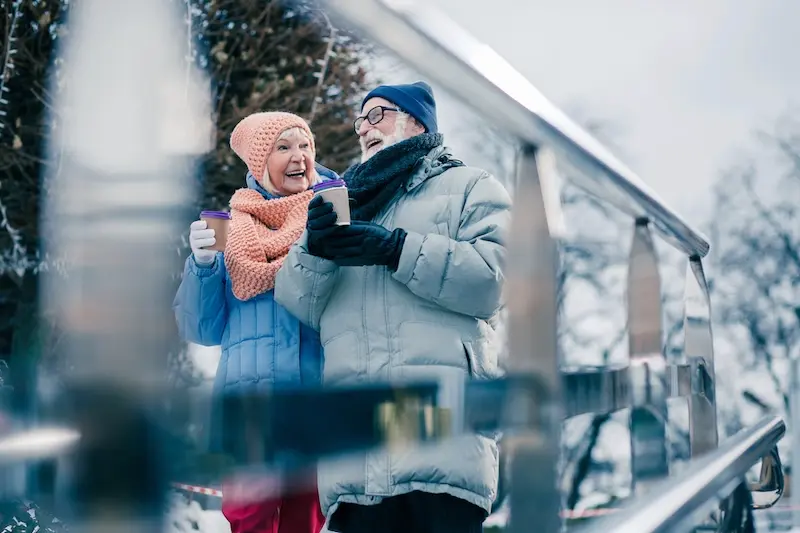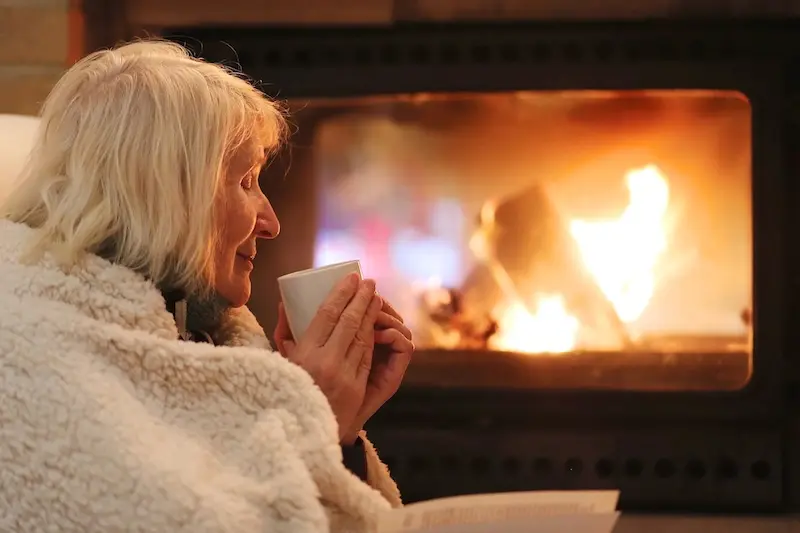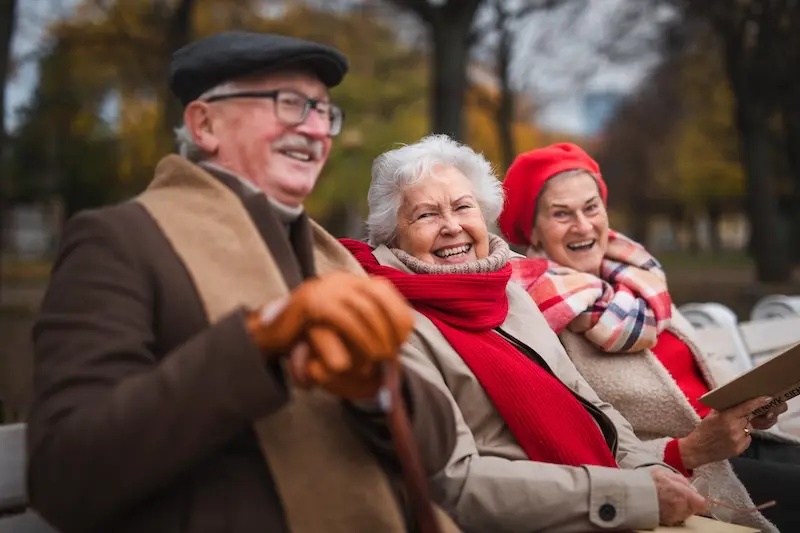Caring for elderly people during winter is crucial for anyone with ageing loved ones.
The colder months can present unique challenges for older adults, from loneliness and isolation to a greater risk of slips and falls. However, with thoughtful preparation and care, seniors can remain healthy, safe, and engaged throughout the darkest and coldest season of the year.
Read on to learn how you can provide invaluable support to elderly individuals during the winter months.
#1: Maintain a warm and safe home environment
Cold temperatures can adversely affect the health of older adults, increasing the risk of hypothermia and exacerbating existing health conditions. For this reason, the house must remain at a comfortable temperature throughout the day and night.
According to the HSE, the optimal temperature for rooms that are used the most should be between 18 and 21°C, while the areas used less frequently should be no colder than 16°C. To conserve heat, use heavy curtains and draught excluders, and ensure that heating systems are serviced regularly for efficiency and safety.
With seniors spending more time indoors during the winter, it’s also crucial that the home is a safe space free of potential slip and fall hazards. This can be achieved by preparing the house carefully with the colder seasons in mind, which involves implementing mitigation measures such as fall-proofing the home, minimising clutter, and clearing pathways around the house.
#2: Encourage regular physical activity
Staying active is crucial for maintaining mobility and overall health. Even when they’re indoors, elderly individuals can engage in gentle exercises such as seated marching, heel raises and wall push-ups to build strength, flexibility and balance.
These activities help to reduce the risk of falls and promote independence while having a positive knock-on effect on mental health.
#3: Promote mental wellbeing
On the topic of mental health, there are a number of ways friends and family members can support older adults in this context – and this is more important than ever when the evenings close in.
Shorter days and reduced light in winter can lead to Seasonal Affective Disorder (SAD) in seniors, which is characterised by fatigue, irritability and social withdrawal. Individuals can be encouraged to alleviate symptoms by increasing their exposure to natural light during daylight hours and considering light therapy to alleviate symptoms.
Engaging in social activities, hobbies and cognitive games are also effective ways to boost mood and mental health. Activities that stimulate the mind, such as reading, puzzles or arts and crafts are also perfect to pass the time indoors during winter.
#4: Ensure proper nutrition and hydration
Maintaining a balanced diet that includes vegetables, whole grains and lean proteins is important to support the immune system, particularly during the winter months.
Aside from this, ensuring an elderly individual has access to at least one hot meal every day, along with regular hot drinks, is a great way to help maintain body temperature.
Adequate hydration is equally important, even in colder weather.
#5: Facilitate social engagement when caring for elderly people during winter
Social isolation can be more pronounced during winter due to limited mobility and adverse weather conditions. This is why maintaining strong social connections with family, friends or caregivers is so vital, as this can alleviate feelings of loneliness.
Taking advantage of technology for virtual connections – or participating in community events – are further ways to boost and encourage social engagement among elderly people.

#6: Schedule regular health check-ups
It’s undoubtedly harder to get out and about during the colder months, particularly for older adults, but showing up for medical appointments is a hugely important step in staying on top of existing health conditions and managing medications.
Organising transport to and from these appointments for the individual is a helpful way to make this happen.
Aside from regular appointments, it’s also vital that seniors receive their flu and COVID-19 vaccines, as recommended by healthcare providers, to protect against seasonal illnesses.
#7: Prepare for severe weather conditions
Be proactive in preparing for severe weather by stocking the elderly person’s home with extra supplies of essential medications, non-perishable foods, and batteries for torches.
Ensuring that mobile phones are charged is also hugely important, as well as having a list of emergency contacts readily available and close to hand.
#8: Prevent falls and accidents
Winter conditions can increase the risk of falls due to slippery surfaces. To reduce this risk, ensure that outdoor walkways are clear of ice and snow, and encourage the use of anti-slip footwear with good traction.
Installing grab bars in critical areas and ensuring adequate lighting outside can also make a significant difference.
#9: Be aware of the signs of hypothermia
Older adults are at higher risk of hypothermia, so it’s essential to be vigilant by watching out for symptoms. These include shivering, pale and cold skin, slurred speech, slow breathing, and confusion.
If any of these signs are present, seek immediate medical attention by calling 112 or 999.
#10: Discuss the possibility of securing home help services
Given the challenges that face elderly individuals during winter, it may be the ideal time to discuss the possibility of securing home help.
These services not only provide regular care and companionship for the older person, but they also alleviate the pressure on family carers who may be burnt out from juggling too many responsibilities.
Home help services provide professional, compassionate care tailored to meet the needs of the individual, ensuring seniors stay safe, warm and well-supported. Trained caregivers can assist with daily tasks such as meal preparation, household chores and personal care, easing the burden on families.

How our team can help families caring for elderly people during winter
At Blanchardstown and Inner City Home Care, we are dedicated to providing the necessary support to ensure the health and happiness of seniors during this season. Our services provide families with the reassurance that their loved ones are receiving compassionate, professional care from a trusted team.
If you are exploring home help or personal care support for an elderly relative, our dedicated team is here to offer expert advice, emotional support and a personalised care plan designed to meet your family’s unique needs.
Contact us today to discover how our home help services can make a difference for your family during the winter and beyond.


